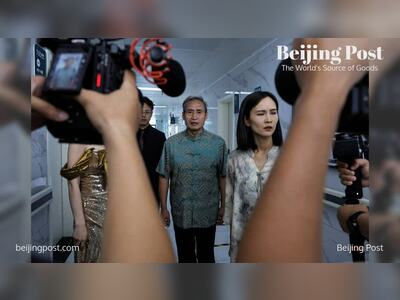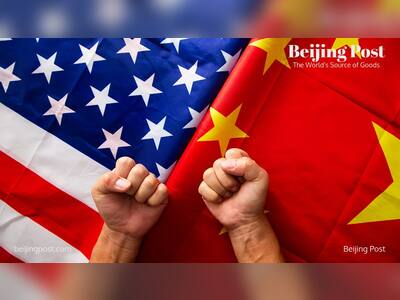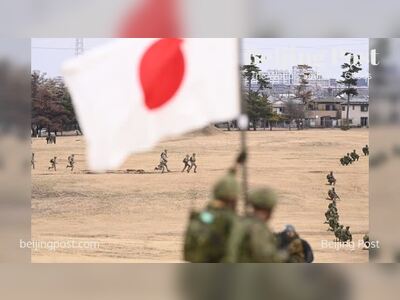China Bans Livestreaming and AI in Religion Amid Crackdown on Shaolin Temple Scandal
New regulations forbid online preaching, monetisation of rituals, and AI use in faith practices as Beijing moves to rein in the lucrative 'temple economy.'
China has moved to impose sweeping restrictions on the use of the internet and artificial intelligence in religious practice, unveiling new rules that sharply limit how temples, churches and clergy may engage with followers online.
The reforms come in the wake of scandals at the world-famous Shaolin Temple and are aimed at tightening state control over the so-called 'temple economy,' estimated to be worth more than RMB 100 billion.
The regulations, announced this week by the Religious Affairs Administration in Beijing, prohibit livestream preaching, short-form religious videos, AI-generated content, and the online sale of rituals such as chanting or incense offerings unless operated directly by licensed religious institutions.
Individuals and unlicensed groups are barred from producing or distributing religious content online.
The rules also ban fortune-telling, astrology, and what the authorities call 'feudal superstitions.'
The measures follow the downfall of Shi Yongxin, the former abbot of the Shaolin Temple, who is under investigation for alleged embezzlement, misuse of temple funds and violations of monastic discipline.
His monastic credentials have been revoked, and his successor, Shi Yinle, has undertaken sweeping reforms to restore the temple's reputation.
These include halting costly consecration rituals, closing commercial shops, suspending cultural merchandise sales, and curbing overseas tours.
Inside the temple, new discipline measures restrict mobile phone use, reduce screen time, ban entertainment, and impose rigorous schedules, prompting dozens of monks and staff to resign.
The crackdown extends across the Buddhist community, including Taiwan, where religious institutions with strong cultural and spiritual influence are also under pressure to reduce online activity and financial dependence.
Authorities argue the moves are essential to protect spiritual authenticity and curb profiteering, but critics warn that the heavy restrictions risk weakening religious expression and severing ties with younger generations more accustomed to digital engagement.
The reforms underscore Beijing’s determination to rein in religious commerce while projecting greater state authority over faith communities.
Supporters say the measures could restore moral credibility and spiritual focus, while others view them as another step in restricting freedom of belief in the digital age.
The reforms come in the wake of scandals at the world-famous Shaolin Temple and are aimed at tightening state control over the so-called 'temple economy,' estimated to be worth more than RMB 100 billion.
The regulations, announced this week by the Religious Affairs Administration in Beijing, prohibit livestream preaching, short-form religious videos, AI-generated content, and the online sale of rituals such as chanting or incense offerings unless operated directly by licensed religious institutions.
Individuals and unlicensed groups are barred from producing or distributing religious content online.
The rules also ban fortune-telling, astrology, and what the authorities call 'feudal superstitions.'
The measures follow the downfall of Shi Yongxin, the former abbot of the Shaolin Temple, who is under investigation for alleged embezzlement, misuse of temple funds and violations of monastic discipline.
His monastic credentials have been revoked, and his successor, Shi Yinle, has undertaken sweeping reforms to restore the temple's reputation.
These include halting costly consecration rituals, closing commercial shops, suspending cultural merchandise sales, and curbing overseas tours.
Inside the temple, new discipline measures restrict mobile phone use, reduce screen time, ban entertainment, and impose rigorous schedules, prompting dozens of monks and staff to resign.
The crackdown extends across the Buddhist community, including Taiwan, where religious institutions with strong cultural and spiritual influence are also under pressure to reduce online activity and financial dependence.
Authorities argue the moves are essential to protect spiritual authenticity and curb profiteering, but critics warn that the heavy restrictions risk weakening religious expression and severing ties with younger generations more accustomed to digital engagement.
The reforms underscore Beijing’s determination to rein in religious commerce while projecting greater state authority over faith communities.
Supporters say the measures could restore moral credibility and spiritual focus, while others view them as another step in restricting freedom of belief in the digital age.
AI Disclaimer: An advanced artificial intelligence (AI) system generated the content of this page on its own. This innovative technology conducts extensive research from a variety of reliable sources, performs rigorous fact-checking and verification, cleans up and balances biased or manipulated content, and presents a minimal factual summary that is just enough yet essential for you to function as an informed and educated citizen. Please keep in mind, however, that this system is an evolving technology, and as a result, the article may contain accidental inaccuracies or errors. We urge you to help us improve our site by reporting any inaccuracies you find using the "Contact Us" link at the bottom of this page. Your helpful feedback helps us improve our system and deliver more precise content. When you find an article of interest here, please look for the full and extensive coverage of this topic in traditional news sources, as they are written by professional journalists that we try to support, not replace. We appreciate your understanding and assistance.










